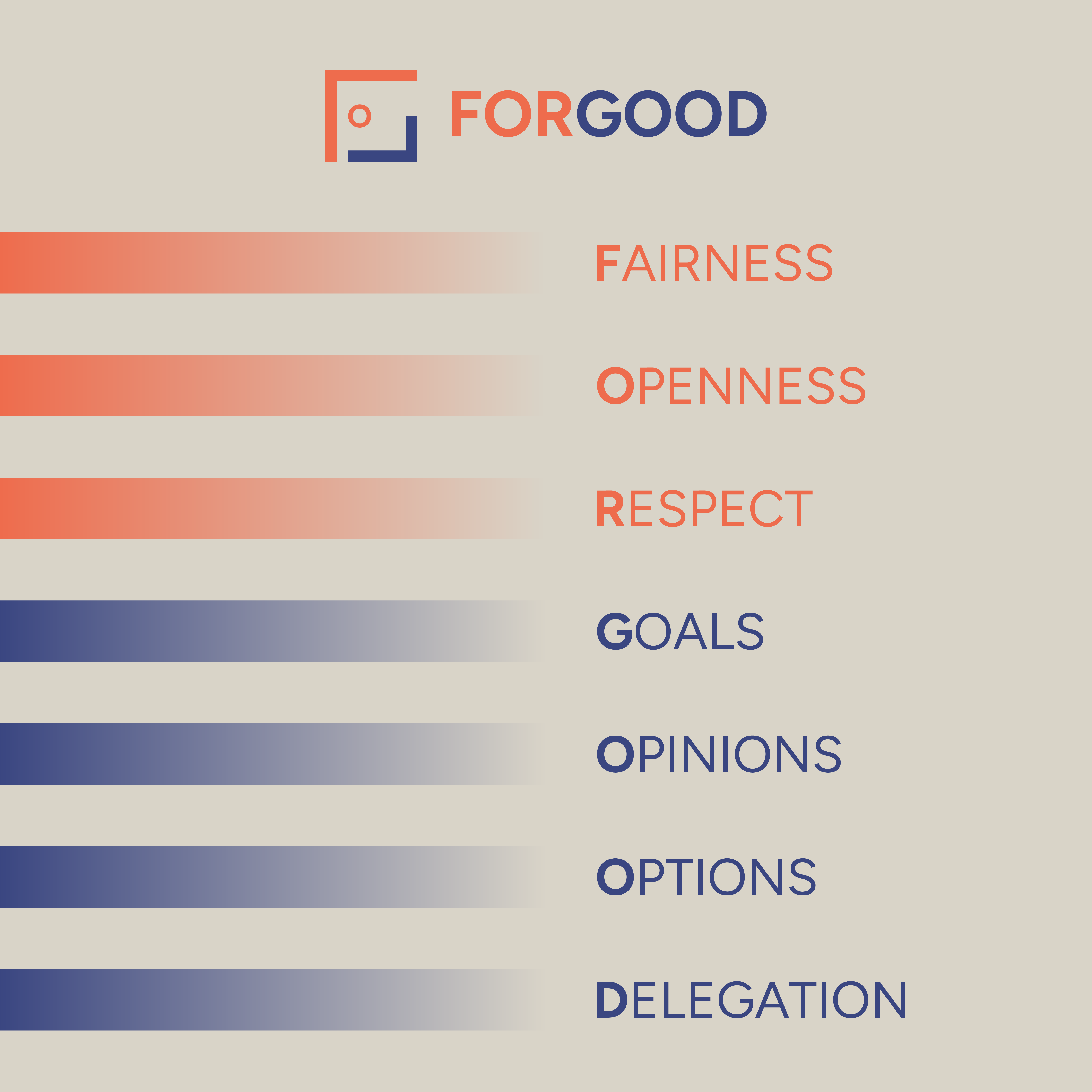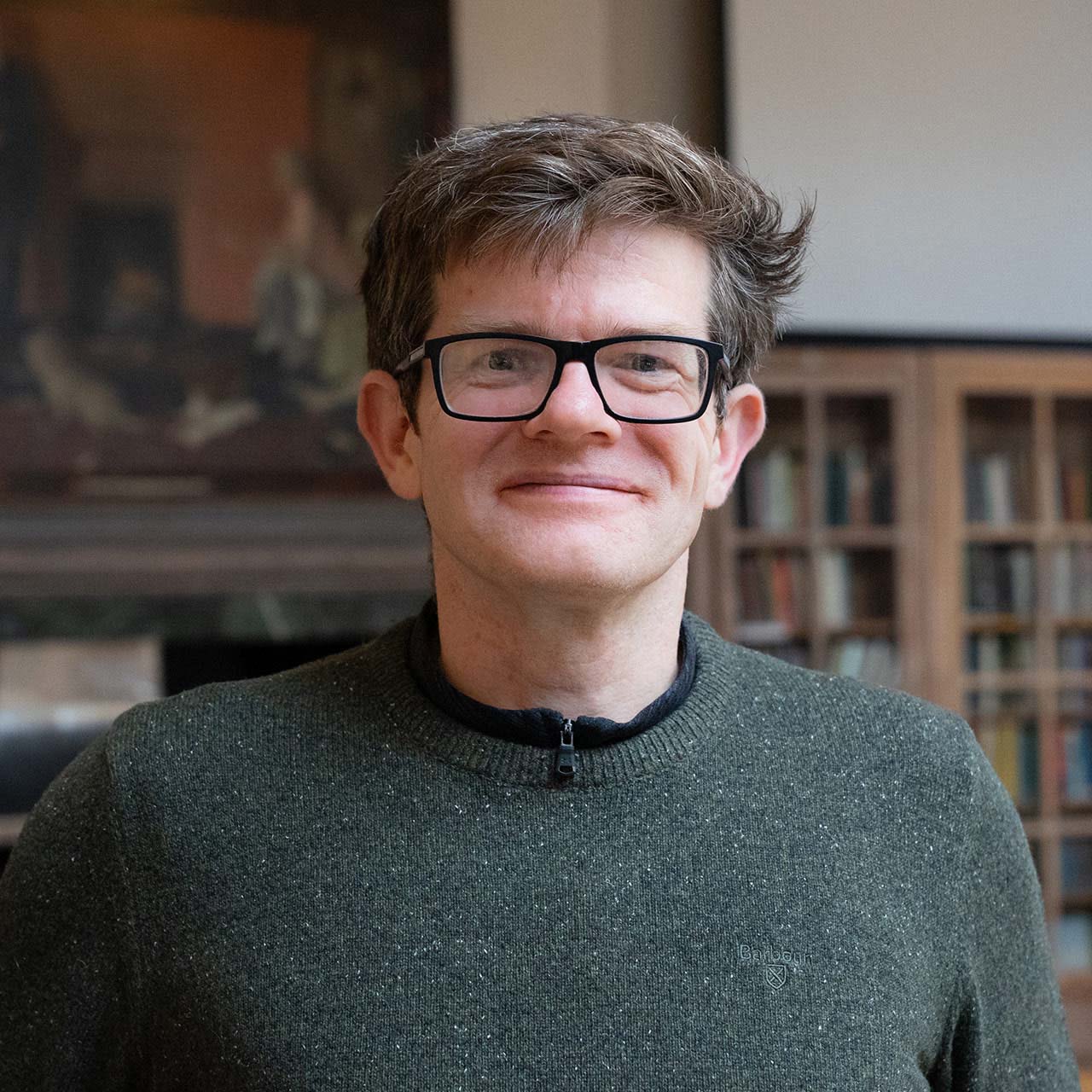About

FORGOOD: Transforming Behavioural Science
Our ambition for this framework is...
For good interventions - higher quality, more effective behavioural science
For good outcomes - better customer experience, accountability, and respect
For good business - more robust, scalable, resilient interventions
For good standing - improving the professionalism of behavioural science
For good - lasting effective change.

Our purpose
Empowering behavioural scientists to influence responsibly and well
Our purpose is to empower behavioural scientists to influence responsibly and effectively – building and earning public trust.
We are building a community of organisations committed to high standards of professional practice in behavioural science. We will collaborate, in partnership, to develop the tools and insights needed for respectful influence in product design, culture change and technological applications.
Evidence increasingly shows that interventions designed with an ethical framework are also better interventions, offering greater scalability and impact. Firms showing leadership in ethics and accountability can also build lasting trust with their stakeholders.

Why FORGOOD?
Better outcomes. Resilience to misuse. Accountability to stakeholders.
Behavioural science offers great potential to improve products, services, user experience and working environments to better reflect how individuals make decisions – resulting in better outcomes – as long as it is exercised with care.
The academic basis is well established, but its industrialised application to influence decision-making is relatively recent. Since the Nudge Unit was established by UK government in 2010 its rise has been exponential – the OECD now counts 142 government units with about half less than 5 years old. The fast growth of behavioural science has outpaced the development of accompanying regulatory frameworks or agreement on what constitutes a professional, responsible Nudge. The collection of case history and a public debate as to the line between influence and manipulation is yet to be established.
Behavioural science as a trusted profession
With a backdrop of declining trust this is a key moment for behavioural scientists, as falling short of public expectations could tarnish the discipline altogether. Public awareness is growing, via government (mis)use of nudge during COVID and increasing coverage of social media techniques to grab attention. As we all know – with great power comes great responsibility – and if behavioural science is to become a trusted profession, then trust needs to be earned, by choosing to be accountable to a set of standards.
Leo Lades and Liam Delaney offered a way forward with the publication of FORGOOD – with a memorable mnemonic that can be used as a practical framework, a tool for design and evaluation, or for training. FORGOOD is the first and leading ethical framework and inspired the codes developed by GAABS, UNICEF and OECD.
Our team adapted the FORGOOD framework for corporate use and it is being used in a growing number of interventions and experiments. The evidence is very encouraging and suggests that interventions are even more effective when developed with an ethical framework.
FORGOOD offers many benefits - better outcomes, resilience to misuse, accountability to stakeholders while also offering resilience towards regulatory or organisational and professional reputational damage.

How to apply FORGOOD
Embedding the FORGOOD framework for trust and accountability
The FORGOOD framework is not intended as a tick-box exercise. To be truly effective it needs to be evaluated actively and embedded within organisational processes to build trust, accountability, resilience, and quality control. It is an agile framework and can be calibrated according to the impact of the planned intervention by using different tools.
FORGOOD synthesises the literature on responsible use of behavioural science, as well as the philosophy and practice of ethics into a manageable and memorable framework. It is not intended to be a simple checklist, but a structure for evaluation and decision-making because questions of practical ethics are usually contextually situated and often involve trade-offs.
By prompting targeted questions for the relevant review body to ask, this framework illuminates the key ethical issues for discussion, mitigation, acceptance or refusal. It can be adapted to each firm’s strategy, values, and goals and provides a clear audit trail for independent review.
Team

Professor Liam Delaney
Co-Founder of FORGOOD
Professor Liam Delaney leads on the scientific insights curated for the FORGOOD community. He co-developed the FORGOOD Framework with Professor Leonhard Lades, heads the Department of Psychological and Behavioural Science at LSE and is a leading expert in the ethical foundations of behavioural public policy. He is a board member and founding partner of the Global Association of Applied Behavioural Scientists (GAABS).

Annabel Gillard
Co-Founder of FORGOOD
Annabel Gillard leads relationship development with the FORGOOD community. She has 20 years experience in asset management and is a key figure in shaping ethical business practices. She serves on the advisory council of the Institute of Business Ethics and Blueprint for better business, and co-founded CFA UK’s ethics committee.

Bishin Ho
Co-Founder of FORGOOD
Bishin Ho leads on the structure and delivery of the FORGOOD proposition. She is a finance strategist with over 15 years of experience. She specialises in applying behavioural science to corporate challenges, particularly in the age of new technology.
Advisory board
Our advisory board shares our vision for the positive impact that the FORGOOD framework offers for professionalising behavioural science, delivering better outcomes and building trust. They provide independent advice and specific expertise when needed.
- Leo Lades | Co-author of FORGOOD and source of expertise on applications in climate and wellbeing.
Leonhard Lades is a Professor of Behavioural and Environmental Economics at the Stirling Management School, the Director of the Stirling Behavioural Science Centre, and the Treasurer of the International Association for Research in Economic Psychology (IAREP). Before (re-)joining the University of Stirling in 2024, he led the Behavioural Science & Policy Group at the UCD Geary Institute and was an Assistant Professor in Environmental Policy at UCD. He also was an EPA Senior Research Fellow in Behavioural Economics at EnvEcon and a Lecturer (with tenure) in Economics and an Early Career Fellow in Behavioural Science at the University of Stirling. He received his PhD in Economics from the Friedrich-Schiller-University Jena where he was a member of the Evolutionary Economics Group at the Max Planck Institute of Economics.
- Stuart Mills | LSE Behavioural Science Fellow and source of expertise on AI implications and intersection.
Stuart Mills is a behavioural economist with a background in economics and political economy. His research focuses on nudge theory, personalisation, and digital economy. Stuart is interested in the intersection of technology, data and behavioural science within public policy and finance, as well as the wider political economy implications.
- Tom Reader | LSE Professor Organisational Psychology and source of expertise on workplace culture.
Dr Tom Reader is a psychologist, and expert on organisational culture. He directs the MSc in Organisational and Social Psychology, and leads the Culture and Risk Research Unit. Tom’s academic background is in Human Factors psychology, and how the design of social and cognitive systems in organisations cause or prevent errors and catastrophic accidents in safety-critical industries. He has a psychology MA and PhD from the University of Aberdeen.
- Kate Thompson | LSE alumna and source of expertise in purpose-driven corporate strategy.
Kate Thompson is an exited entrepreneur and serves as board member /advisor for The City of London Corporation, Tech She Can, Deep Science Ventures, HeyFlow, The London School of Economics and Political Science (LSE) FORGOOD, The Jobs Foundation, Smartphone Free Childhood, Everywoman and Action for Happiness. She brings 20+ years expertise in purpose-driven strategy, innovation, transformation and behavioural science, and is a change agent for mental health& wellbeing, gender equality and responsible business.
FAQs
In this FAQ section, we have outlined responses to common inquiries about FORGOOD. If you need further information, please don’t hesitate to contact us.
FORGOOD is a mnemonic to assist and structure ethical review of behavioural intervention design and has an associated framework to guide use, comprising of: Fairness, Openness, Respect, Goals, Opinions, Options, Delegation.
The co-founder of this initiative heads the Department for Psychological and Behavioural Science at LSE and previously co-authored the FORGOOD framework with Leo Lades in 2022. LSE provides operational support and access to a broad range of academic expertise and has a stake in this initiative.
Contact us to schedule a conversation to discuss whether membership could be useful for your organisation.
Our current members include NatWest, Barclays, Citigroup, Bank of Ireland and Commonwealth Bank of Australia.
Practical and flexible framework to enable consistent and ethical applications of behavioural science across your organisation.
Independent scrutiny for behavioural intervention and design within your organisation.
Accountability to stakeholders, including regulators.
Trust building, especially to those on the receiving end of behavioural interventions, to build confidence that their interests are being prioritised and interventions designed respectfully.
Participating in the professionalising of behavioural science.
Read more about our membership here.
There is a growing body of academic literature, along with practical case studies, showcasing the impact of FORGOOD on behavioural interventions. We explore these insights in our quarterly workshops, and members can access them here.
The FORGOOD framework is designed to be flexible and adaptable, offering a range of practical tools tailored to different settings and objectives. To learn more, please contact us.
Increasingly, FORGOOD is becoming a core element of behavioural science education. Those practitioners who join the Global Association of Applied Behavioural Scientists(GAABS) sign up to a code of conduct based on FORGOOD. This theoretical understanding and commitment to responsible use is a critical component of the professionalising of behavioural science to facilitate its recognition as a trusted discipline.
For those organisations who want to embed responsibility into their business, education is necessary but not sufficient. Embedding consistency means moving beyond individual theoretical familiarity. Where accountability to stakeholders is needed, there is significant value to be gained from independent review on the practical application of the leading, tested framework.
In each workshop, we explore practical applications of FORGOOD within a chosen theme, ranging from organisational culture to AI applications – each selected in consultation with members. We synthesise the established literature, explore developing research discoveries, practical applications, and workshop its impact via peer learning. More information can be found here.
This initiative provides a practical ethical framework that can help organisations balance their responsibilities to multiple stakeholders including shareholders, customers and regulators. However, it is for each organisation to decide how they apply FORGOOD in their own business, which is why we cannot provide a regulatory guarantee to members.
This initiative is specifically designed for institutions. We recommend individuals join the Global Association of Applied Behavioural Scientists (GAABS) for individual support.
There is a growing body of evidence for the efficacy of FORGOOD. Please see the case studies provided in the Members Area.
